Premium Only Content

Donald Trump's Early Life and Path to the Presidency
Donald John Trump, the 45th President of the United States, has had a colorful and multifaceted life before and during his presidency. His life can be divided into several key stages:
Early Life and Education (1946-1968):
Donald John Trump was born on June 14, 1946, in Queens, New York City. He was the fourth of five children of Fred and Mary Anne Trump.
He attended the Kew-Forest School in Queens and later the New York Military Academy.
Trump graduated from the Wharton School of Finance at the University of Pennsylvania in 1968 with a Bachelor of Science degree in economics.
Business Career (1968-2016):
After graduating from college, Trump joined his father's real estate development company, the Trump Organization.
He played a significant role in expanding the company's real estate empire, primarily in the New York City area.
Trump became known for his aggressive, sometimes controversial, business tactics.
He ventured into various industries, including real estate development, branding, entertainment, and even the airline business.
Over the years, he developed a public persona as a larger-than-life figure known for his lavish lifestyle and self-promotion.
His notable real estate projects include Trump Tower in Manhattan, Trump Plaza, and Trump Taj Mahal in Atlantic City.
He also hosted the reality TV show "The Apprentice," which brought him additional fame and fortune.
Political Involvement (1987-2016):
Trump first dipped his toes into politics in 1987 when he published an open letter in several major newspapers criticizing U.S. foreign policy.
In 2000, he briefly ran for the Reform Party's presidential nomination.
Trump switched his party affiliation multiple times, including being a Democrat and an independent, before becoming a Republican in 2012.
He considered running for president in 2012 but decided against it.
In 2015, Trump announced his candidacy for the 2016 Republican presidential nomination and quickly gained attention for his controversial statements and unorthodox campaign style.
Presidential Campaign and Election (2016):
In the 2016 Republican primaries, Trump secured the nomination by defeating a crowded field of candidates.
His campaign focused on issues such as immigration, trade, and "America First" policies.
Trump's presidential campaign was marked by its divisive rhetoric and criticism of the political establishment.
He faced off against the Democratic nominee, Hillary Clinton, and won the electoral vote, securing his victory as the 45th President of the United States.
Presidential Term (2017-2021):
Trump was inaugurated as President on January 20, 2017.
His presidency was marked by a significant policy shift in areas such as taxation, deregulation, immigration, and foreign policy.
Trump's approach to diplomacy was characterized by a preference for bilateral deals and a more confrontational stance toward international organizations.
He appointed three Supreme Court Justices during his term, which solidified a conservative majority on the Court.
His presidency was also marked by significant controversies, including the impeachment by the House of Representatives in 2019.
Trump ran for re-election in 2020, but he lost to Joe Biden, who became the 46th President of the United States.
Post-Presidential Life (2021-Present):
After leaving the White House, Trump remained an influential figure in the Republican Party.
He continued to assert, without evidence, that the 2020 election was "stolen" from him.
He faced legal challenges, including investigations into his business dealings and financial records.
Trump has remained a polarizing figure in American politics and media, with many of his supporters and detractors expressing strong opinions about his actions and policies.
This is a broad overview of the life of Donald Trump, with a focus on key stages of his career and his presidency. His legacy and impact on American politics continue to be subjects of significant debate and analysis.
-
 1:04:35
1:04:35
BonginoReport
2 hours agoTrump Ca$hes In After Suing FAKE NEWS CBS - Nightly Scroll w/ Hayley Caronia (Ep.82) - 07/02/2025
31.5K18 -
 1:09:01
1:09:01
TheCrucible
3 hours agoThe Extravaganza! EP: 13 (7/02/25)
74.2K10 -
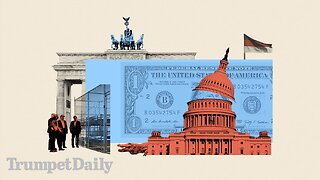 LIVE
LIVE
LFA TV
21 hours agoLFA TV ALL DAY STREAM - WEDNESDAY 7/2/25
753 watching -
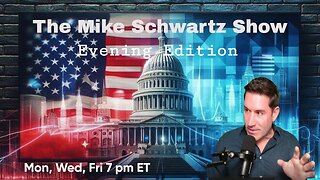 LIVE
LIVE
The Mike Schwartz Show
8 hours agoTHE MIKE SCHWARTZ SHOW Evening Edition 07-02-2025
85 watching -
 37:11
37:11
The Dr. Ardis Show
11 hours ago $2.20 earnedThe Dr. Ardis Show | Can Venom Bee Healthy with Dr. Jana Schmidt | Episode 07.02.2025
2.84K -
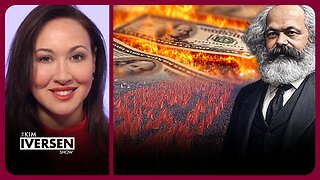 1:37:27
1:37:27
Kim Iversen
3 hours agoALERT! Over 60% Of 18-30 Year Olds Now Support SOCIALISM! Capitalism Is FAILING
22.7K69 -
 LIVE
LIVE
Dr Disrespect
7 hours ago🔴LIVE - DR DISRESPECT - HIGH KILL SOLOS ONLY
1,791 watching -
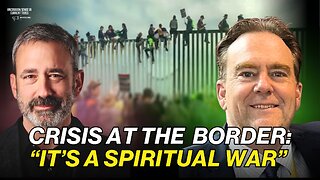 30:06
30:06
Uncommon Sense In Current Times
9 hours agoUS Border Chaos, Spiritual War & the Church’s Silence | Pastor David Scarlett
1.97K1 -
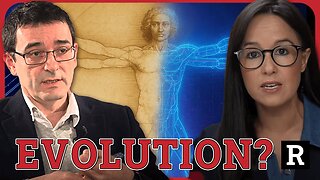 39:25
39:25
Redacted News
3 hours agoAI Isn’t About Machines. It’s About Us.
27.5K39 -
 LIVE
LIVE
The Rabble Wrangler
3 hours agoThe Rabble Wrangler Returns! Call of Duty Warzone with The Best in the West
32 watching